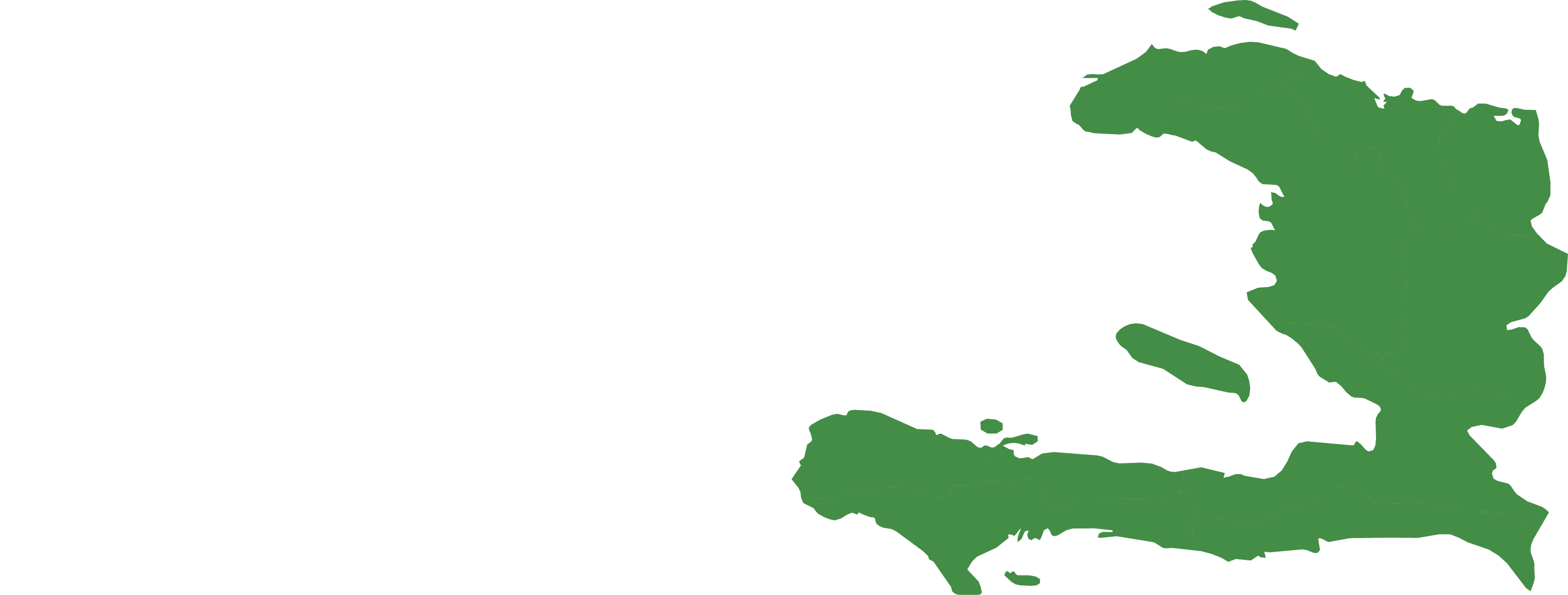Cherlie and I spent three weeks recently in the US, meeting with many people, attending an FHH board meeting and attending the 12th annual FHH banquet at the Wisconsin Club in Milwaukee. We had a wonderful three weeks and appreciate all who came out to show their support at our banquet. We had record attendance and the enthusiasm was unsurpassed! Much thanks to the wonderful Banquet Committee, led by Lin McKenney, and all who volunteered to help out the night of the event. You did a fantastic job!

Haitian crafts on display in the Haitian Artist Colony at the FHH banquet April 28, 2018
There were two new programs that we highlighted at the banquet and which I’d like to describe for you here. The first is a Diabetes Institute that we are establishing at our outpatient clinic in Gatineau. This is a program to which Cherlie and I personally contributed seed money and is established in memory of my parents, Donald and Virginia Wolf and in honor of my sister Laura Bedient, who has diabetes herself. The Institute will enroll our most indigent diabetes patients for a small yearly fee, after which they will receive monthly consultations, blood glucose testing and medications. Our expectation is that this will help them better control their disease, and thus enable them to live healthier, more productive lives. Many of our patients have young children and families they need to care for and if their diabetes isn’t controlled, they are unable to fulfill their family duties. The Diabetes Institute has a charter and will be a designated fund so that 100% of donations to it will be used directly for patient care here in Haiti. We encourage you to support this new initiative both financially and in prayer.

Laura Bedient receives the Diabetes Institute charter from Cherlie and Laura’s son Timothy (FHH board secretary)
Rural families in Haiti live as subsistence farmers, growing crops and raising animals to sell to support their families and send their children to school. During Hurricane Matthew in October 2016, many families lost crops and livestock and have had a difficult time surviving. In order to help meet these livelihood needs in the communities around our clinic, Friends for Health in Haiti has decided to start a Goat Program. Key features of the program are as follows:
- The initial pilot program will involve 4 communities near our clinic.
- Two supervisors (our employees and Community Promoters) will work with a committee chosen by the community to oversee the program.
- Twenty-five families will be chosen by the committee in each community to receive two female goats. They will be bred to two bucks that come from an improved breed, raised to provide more meat and larger goats.
- Each recipient family will receive training regarding care of their goats, importance of immunizations and basic financial management.
- After breeding, the family will take care of the female goats with a requirement to pay back the community with two of the offspring, after which all further goats will belong to the family.
- A veterinary technician will be available for any medical problems with the goats and to help with the babies, if needed after delivery. Vaccinations will be given to all goats in the program every year.
- Offspring goats will be given to families in a new community each year and the process will repeat itself in the new community.
- We’re hoping that the communities will be able to sustain the program on their own in the future by selling some of the offspring goats to pay for veterinary supplies and vaccines for the program. In this way, eventually all the communities around the clinic will benefit from the program and the socioeconomic level of the people will rise.
We were thrilled to see the level of support that was offered to this new Goat Program at our annual FHH banquet. We are also grateful for partners such as Dr. Nancy Willerton from Denver, CO, Wade and Janet McGuinn and Mt. Horeb United Methodist Church in Columbia, SC who are assisting us with this project. GO GOATS!!!

Goats are an important part of rural Haitian communities, providing money when they’re sold so families can pay for food and schooling for their children.

Well done and go goats.